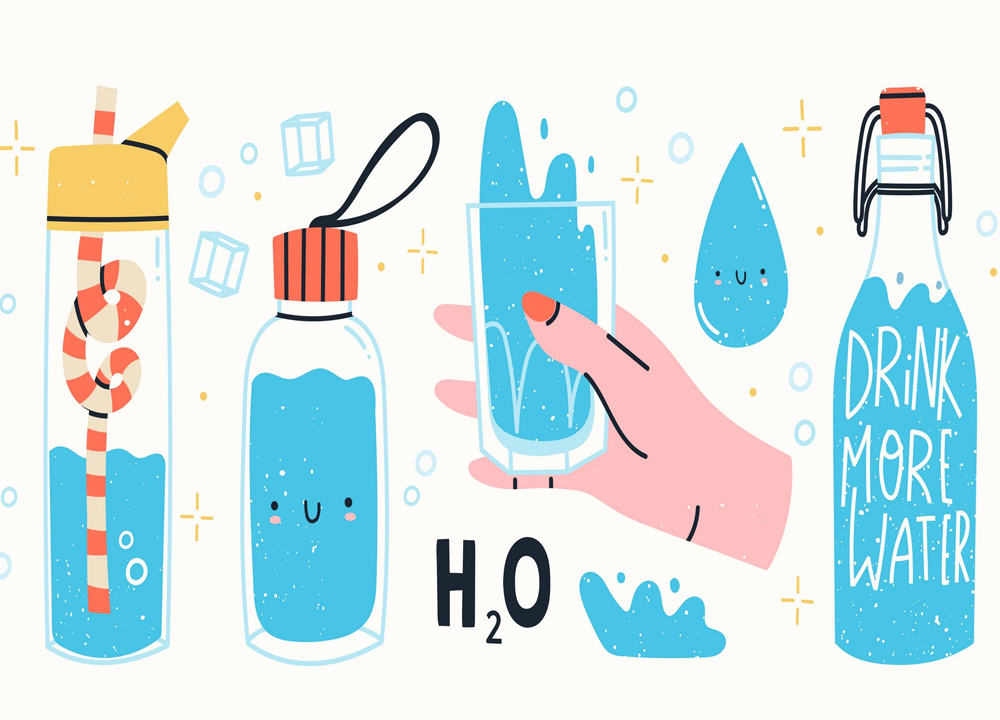Water, the elixir of life, is fundamental to our existence. It is the very essence of our being, the cornerstone of our health. In this article, we delve into the significance of hydration, exploring its impact on our body, mind, and overall well-being.
The Science of Hydration
At a cellular level, our bodies are predominantly made up of water, around 60%. This aqueous composition underscores the pivotal role water plays in our daily lives. It’s the solvent for chemical reactions, regulates body temperature, and acts as a transport system, carrying essential nutrients and oxygen to cells while removing waste products.
Understanding Dehydration
Dehydration is your body’s way of sounding the alarm that it’s running low on essential fluids. Common signs of dehydration include excessive thirst, dry mouth, dark urine, fatigue, and dizziness. In severe cases, it can lead to confusion, rapid heartbeat, and fainting. Your body craves water to function optimally, and neglecting its need can have dire consequences.
Daily Hydration Requirements
The golden rule for daily water intake is often quoted as eight 8-ounce glasses, totaling about 2 liters (or half a gallon). However, individual needs vary. Factors like climate, physical activity, and overall health play a significant role. A more accurate approach is to listen to your body; it has a way of letting you know when it’s time for a water break.
Hydration and Physical Performance
For those engaged in physical activities or sports, proper hydration is paramount. Dehydration can lead to a significant decrease in physical performance. Even a loss of 2% of your body’s water content can result in reduced endurance and strength, making staying hydrated during exercise crucial.
Hydration and Cognitive Function
Dehydration doesn’t only affect your physical state; it also impairs cognitive function. Your brain, like any other organ, needs sufficient hydration to perform optimally. Dehydration can lead to problems with short-term memory, concentration, and alertness.
Hydration and Weight Management
Water has the remarkable ability to aid in weight management. Drinking a glass of water before a meal can help control appetite, prevent overeating, and promote a feeling of fullness. Additionally, water assists in breaking down food and promoting healthy digestion.

Hydration Tips:
Make it a habit : Incorporate regular sips of water into your daily routine.
Variety is key : While water is the primary source of hydration, juicy fruits and vegetables also contribute. Cucumbers, watermelons, and oranges are excellent sources of hydration.
Herbal teas : If plain water feels monotonous, herbal teas or infused water can be a flavorful, hydrating alternative.
Know your body : Pay attention to the signals your body sends. Thirst is your body’s way of asking for water.
Rehydration after exercise : After a workout, rehydrate with water and, if needed, an electrolyte drink to restore essential minerals lost through sweat.
Conclusion
Hydration is not merely a choice; it’s a lifestyle. Embrace the profound impact that proper hydration can have on your body and mind. From enhancing physical performance to sharpening cognitive abilities and promoting overall health, the benefits are vast. Drink up, for water is your silent ally on your journey to a vibrant, well-hydrated life.




